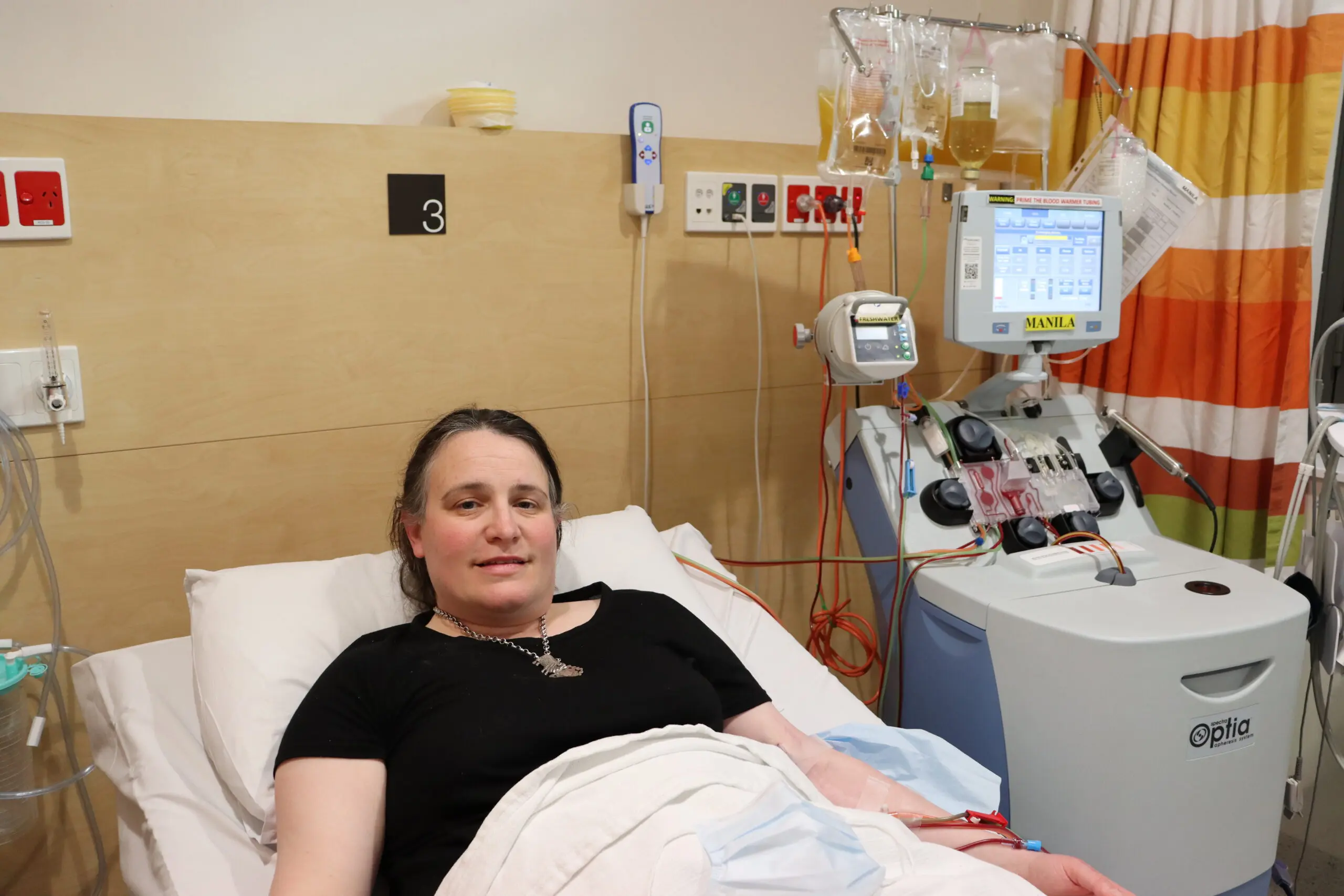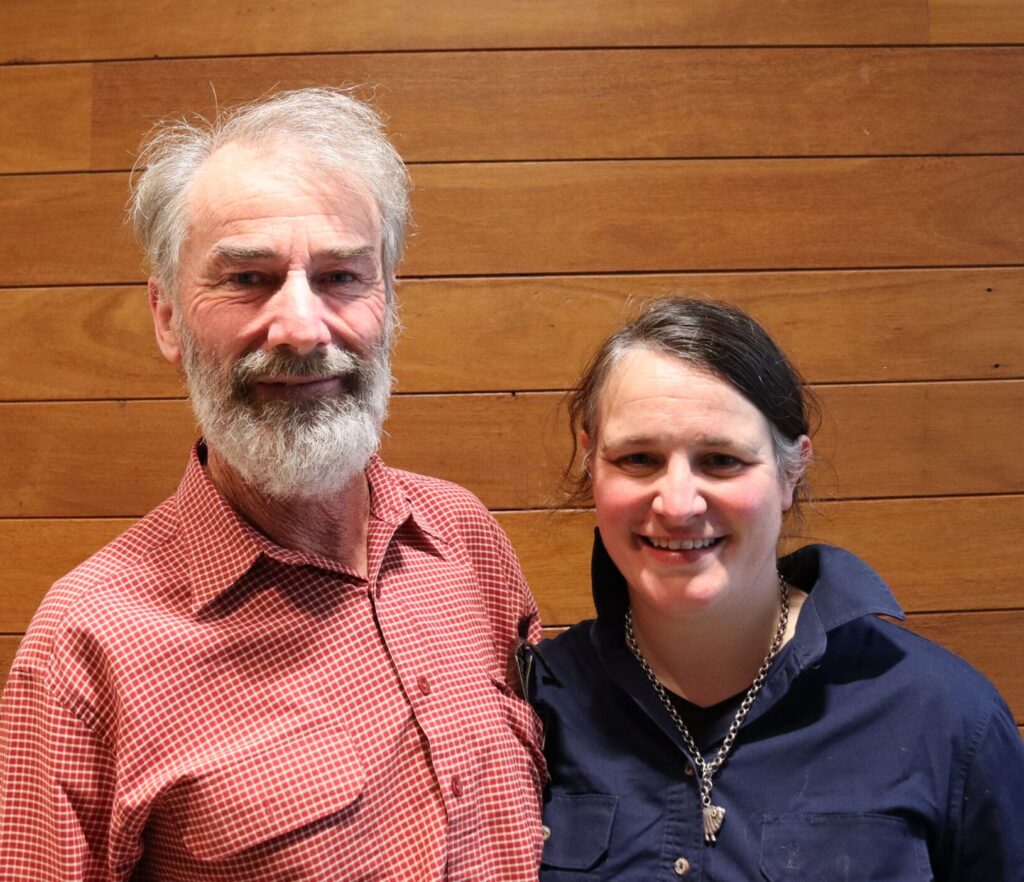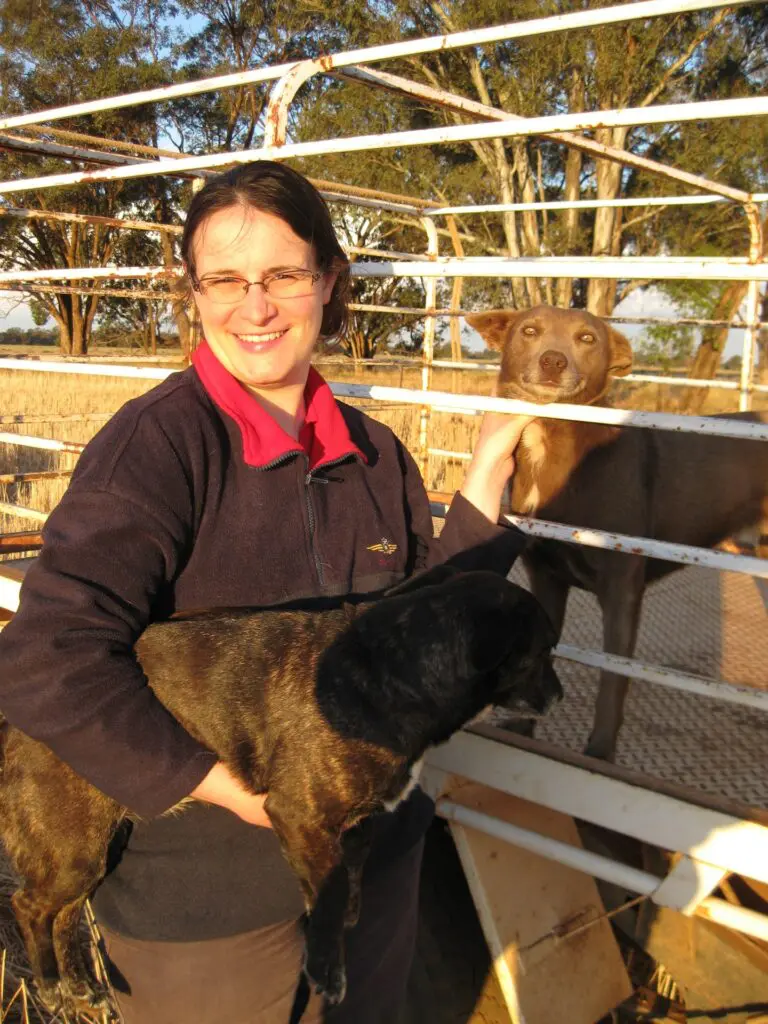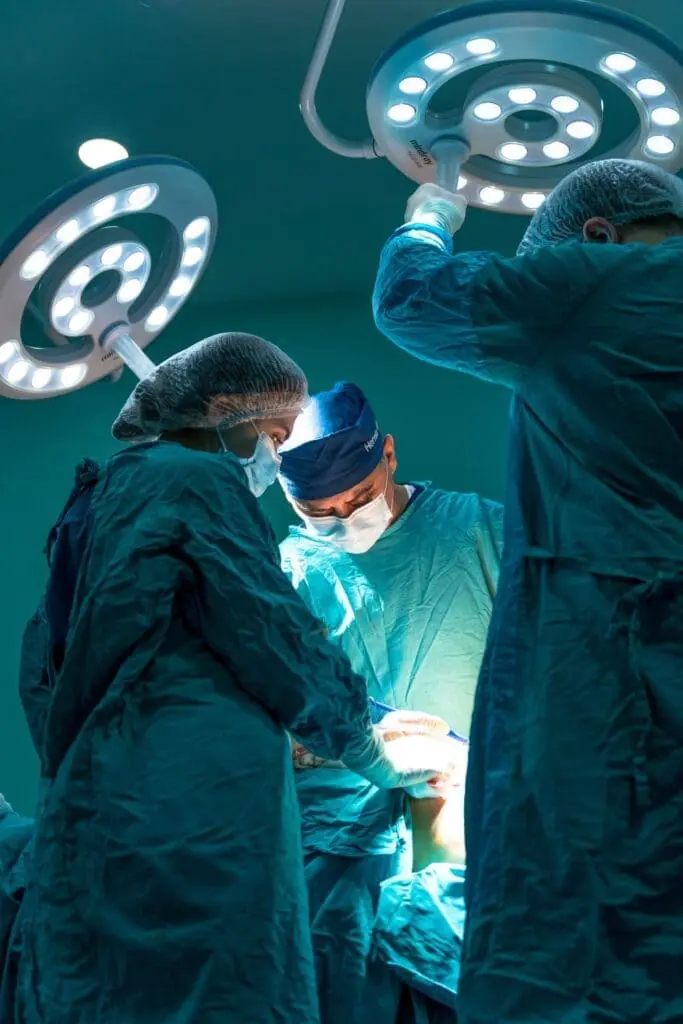
Georgina has relied on life-saving apheresis treatment every month for the past 11 years at Royal North Shore Hospital (RNSH). Even though she now lives miles away in remote NSW, Georgina and her family have experienced the exceptional patient care RNSH is known for throughout their lives.
Royal North Shore Hospital has always been “our” hospital
Forty years ago, I was born at Royal North Shore Hospital in the old maternity block which my mother remembers had a lovely wide verandah. Two years later, my sister was born there too. She suffered from asthma, and when she was young, we would often use the pool at RNSH as part of her therapy. Of course, the hospital has changed a lot since then!
When I was 13 years old, I can distinctly remember noticing my legs were different colours. My fingers and toes would get pins and needles when I was cold.
A specialist at RNSH diagnosed me with Raynaud’s disease, where the small arteries narrow and limit the amount of blood to my peripheral nerves – I basically couldn’t feel extreme temperatures.
My dream was always to be a farmer and live where the red dust swirls, and after I met my husband Cranley at the Sydney Royal Easter Show, I moved six hours away to be with him. Our farm is on 4,000 acres with 2,500 sheep and 1,000 acres under crop and the nearest GP is 80 kms away!
We’d only been married for three years when Cranley became critically unwell. He’s a fit man who had only just stopped playing rugby, so it was a real concern when he suddenly collapsed and had slurred speech.
He was diagnosed with sick sinus syndrome of the heart and was then airlifted to RNSH where he had a pacemaker fitted.
In 2013, I noticed that I was more tired than usual, but I put it down to the fact it was harvest time. As the sun was setting, I jumped into the ute to make my way back to the house. My hands gripped the steering wheel so tightly I couldn’t straighten my fingers. I had experienced claw hand before, but nothing like this and it was scary.
I was referred to neurologist Associate Professor Karl Ng at RNSH who ordered a series of blood and nerve tests. I knew deep down there was an issue when I didn’t react to temperatures as low as –33C.
I spent two weeks at the hospital undergoing more tests, followed by five apheresis treatments to filter the unhealthy antibodies from my blood and exchange the plasma.


Specialists at RNSH diagnosed me with an autoimmune disease
It was at this time that Dr Ng diagnosed me with neuromyotonia which is an autoimmune disease caused by my immune system attacking healthy cells and so far, there is no cure. I get painful cramps, spasms, stiffness, twitches and weakness in my muscles.
I had mixed emotions about my diagnosis. I was shocked but relieved that I knew what it was but also concerned that it could develop into another neurological disorder in the future.
I’m a positive person. You have to be when you live on the land and go through drought, floods and fires – but my illness is so chronic that it makes everyday jobs much more difficult at times.
I’m told there are only a few hundred people in the world who have the same disease as me, but I am thankful for my family and for my amazing healthcare teams at RNSH.
In 2015, when I was pregnant with my daughter, I was advised that I would need to have a caesarean section due to my illness. She was born on the same campus as me and I wanted to be close to the neonatal intensive care unit should there be any issues, as well as the apheresis unit for treatment.
Thankful for the exceptional patient care our family has received at RNSH
Two years later, my father was diagnosed with leukaemia and passed away at RNSH within a month of diagnosis. I remember us all receiving amazing care and support during this difficult time from the Northern Sydney Cancer Centre and intensive care unit.
I have now been receiving apheresis treatments every month for the past 11 years. It’s a four-day round trip away from the farm, and while I’m not getting better, I’m thankful I’m not getting any worse and the treatment is keeping me alive.
I also continue to live with Reynaud’s disease which makes everyday tasks difficult as I can’t feel the temperature of the shower or the pot on the stove when I’m cooking dinner.
Coupled with the neuromyotonia, my prognosis for the future is uncertain, however the more stable I can be from having treatment, the more I can live my life to the fullest. Living on the land has taught me to be resilient and I need to keep going for the farm and my family.
The Northern Sydney Local Health District continues to care for us all even when we least expect it. In October this year, Cranley had his prostate removed at a private hospital and while he was recuperating, he developed a complication. He started getting chills and a fever, so we went to RNSH emergency where they diagnosed him with methicillin-resistant Staphylococcus aureus and gave him a strong course of intravenous antibiotics.
Cranley made a full recovery in time for harvest, and we remain deeply thankful for the patient care at RNSH that helps put us back together so we can keep going.
If you would like to donate and support the healthcare professionals at Royal North Shore Hospital, please click here.
Georgina’s story appeared in the 2024 Christmas Appeal
